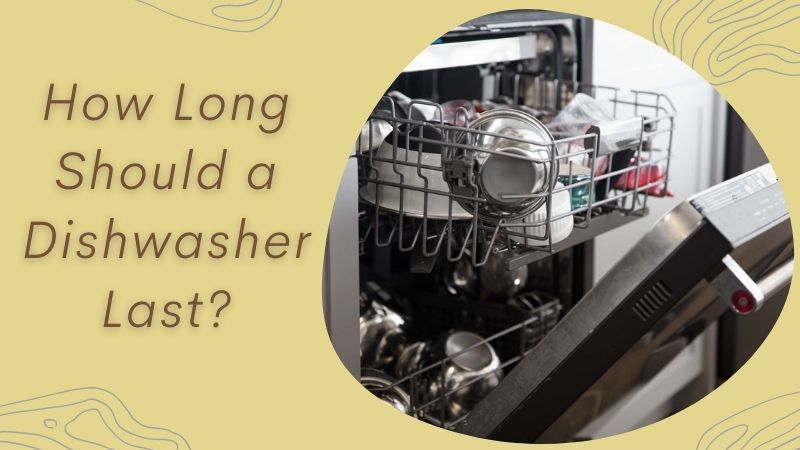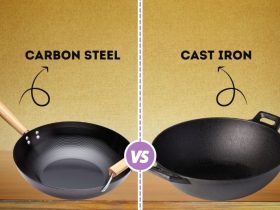How long does a dishwasher last on average? How many years can you expect your dishwasher to last, and what are the most common problems with them?
How To Extend Their Life
How long does a dishwasher last on average? How many years can you expect your dishwasher to last, and what are the most common problems with them?
Dishwashers are designed to be used in conjunction with hot water, therefore they will wear out faster than other kitchen appliances.
Typically, you can expect your current dishwasher to last anywhere from 6-10 years.
Some of the most common problems with dishwashers are rusting, poor cleaning, leaks, and a complete breakdown in function.
Leaks can be costly because it may indicate that there is a problem with the seal. This would require professional assistance.
Poor cleaning is when dishes are not being cleaned properly, or the water is not hot enough.
A complete breakdown in function means that there is no power going to your dishwasher. This can be caused by a faulty internal breaker switch, blown fuse, malfunctioning circuit board, or any other electrical components of the machine.
The next most common problem is rusting. This can be due to low water lines, using the wrong type of dish soap, and not running it often enough.
Proper maintenance is the best way to make sure your dishwasher will last for many years to come. You should always use hot water and check that the line of hot water is coming in from the valve.
The correct dish soap should be used such as Cascade or Dawn, and you should always run your dishwasher with a full load of dishes.
You can also do things like add salt to the bottom drawer during the wash cycle to help prevent rusting. Do not use fabric softener if your machine has a fabric softening feature, or use vinegar as a rinse aid.
There are many other things to consider when you want to know how long does a dishwasher last on average. It is important to follow the manual that came with your appliance for proper usage and maintenance. Doing so will help extend the life of your current dishwasher.
Repairing a dishwasher is a good option if you have a newer stove with electronic components. Replacing a dishwasher can be expensive, so it is recommended to repair any problems as soon as they arise.
How Long Does It Take Dishwashers to Clean Dishes?
There are two major types of dishwashers. The main difference between the two is the method in which they clean dishes. The older, less common type uses a heating element to dry out the water that remains after washing, while modern dishwashers use high-pressure pumps to suck air bubbles from underneath the water’s surface. These pumps also remove some of the water, which leaves dishes with a dry sheen.
This results in the dishwasher running for slightly less time than your standard drying cycle. In fact, high-pressure pumps use only about three to four gallons of water per cycle. Older models use around eight to ten gallons per wash load. The less water and energy that’s used, the better for the environment.
How Long Does It Take Dishwashers to Clean Dishes?
There are two major types of dishwashers. The main difference between the two is the method in which they clean dishes. The older, less common type uses a heating element to dry out the water that remains after washing, while modern dishwashers use high-pressure pumps to suck air bubbles from underneath the water’s surface. These pumps also remove some of the water, which leaves dishes with a dry sheen.
This results in the dishwasher running for slightly less time than your standard drying cycle. In fact, high-pressure pumps use only about three to four gallons of water per cycle. Older models use around eight to ten gallons per wash load. The less water and energy that’s used, the better for the environment.
Advantage Of A Dishwasher
A dishwasher also takes a lot less time to dry dishes than a standard drying cycle. This saves you the trouble of rewashing your dishes after unloading them from the washer. It is important to note that some newer models don’t have humidity sensors or heat elements, so they sometimes leave behind water droplets on glasses and dishes. This is where a standard drying cycle comes in handy.
Another thing to note is that if you have an older dishwasher, it will use slightly more water and electricity than newer models. Newer dishwashers also include many features such as delayed start times and multiple wash cycles. These can be beneficial for busy families who simply want a quick clean-up after a meal.
Is Energy Usage Affected By Age?
Older dishwashers are not as energy efficient as newer models because older appliances lack advanced features that conserve resources. Many older machines use much more water and electricity per load than their modern counterparts. However, the Energy Star label was introduced in 1992 to help consumers identify more efficient dishwashers. Newer models have been built with environmental sustainability in mind, so they use less of everything from water to energy compared to older machines.
In addition, some new models can even be connected directly to a home’s cold water line without requiring a hot water connection. Other advanced dishwashers have sensors that adjust the length of time they run according to how dirty dishes are, further reducing their energy usage.
Why Should Buy A Dishwasher?
Now that you have found out “How long do dishwashers run?” the next step is to determine if your home needs one. Newer models are more expensive than older ones, but investing in a new dishwasher usually pays for itself within its lifetime. These appliances are also more environmentally friendly, using less water and energy per load.
Modern dishwashers can even connect directly to a home’s cold water line without requiring the installation of a hot water connection. This saves more time and money for those on a busy schedule. Dishwasher energy consumption also decreases every year as newer models become available, so you’ll be doing your part to save the environment as well. If this piques your interest, you might consider researching “How much does a dishwasher cost?”
Is Dishwasher Running More Than Once A Day Useful?
While it is true that most modern dishwashers can run multiple times per day without any problems, there are many instances in which this won’t be beneficial for the user. For instance, having a dishwasher run multiple times per day will result in more energy and water costs for the user.
The dishes themselves may also begin to wear down over time as they are continuously washed, which decreases how long the machine stays useful. People who like to clean up after every meal should consider investing in one of these appliances, but those who don’t want to run a dishwasher multiple times per day should stick with their traditional drying racks.
Dishes Must Be Scraped Before Running The Cycle?
This is not true. By scraping off excess food before putting dishes in the washer, you risk creating an unbalance that can break glassware or scratch plates and bowls. Plates and bowls should be loaded one at a time; this will prevent them from sliding around while the washer is running. Older models may require you to scrape plates before loading them, but for most models, this step is not necessary.
Conclusion
Dishwashers are considered one of the most expensive appliances to purchase, so it’s natural that you want to find out how long they last. The average lifespan for dishwashers is 10-12 years. However, there are many factors that can impact this number including your water hardness and what type of dishes you typically wash. If you have any questions about dishwasher longevity or need help figuring out if a new appliance will fit your budget, don’t hesitate to contact us!






